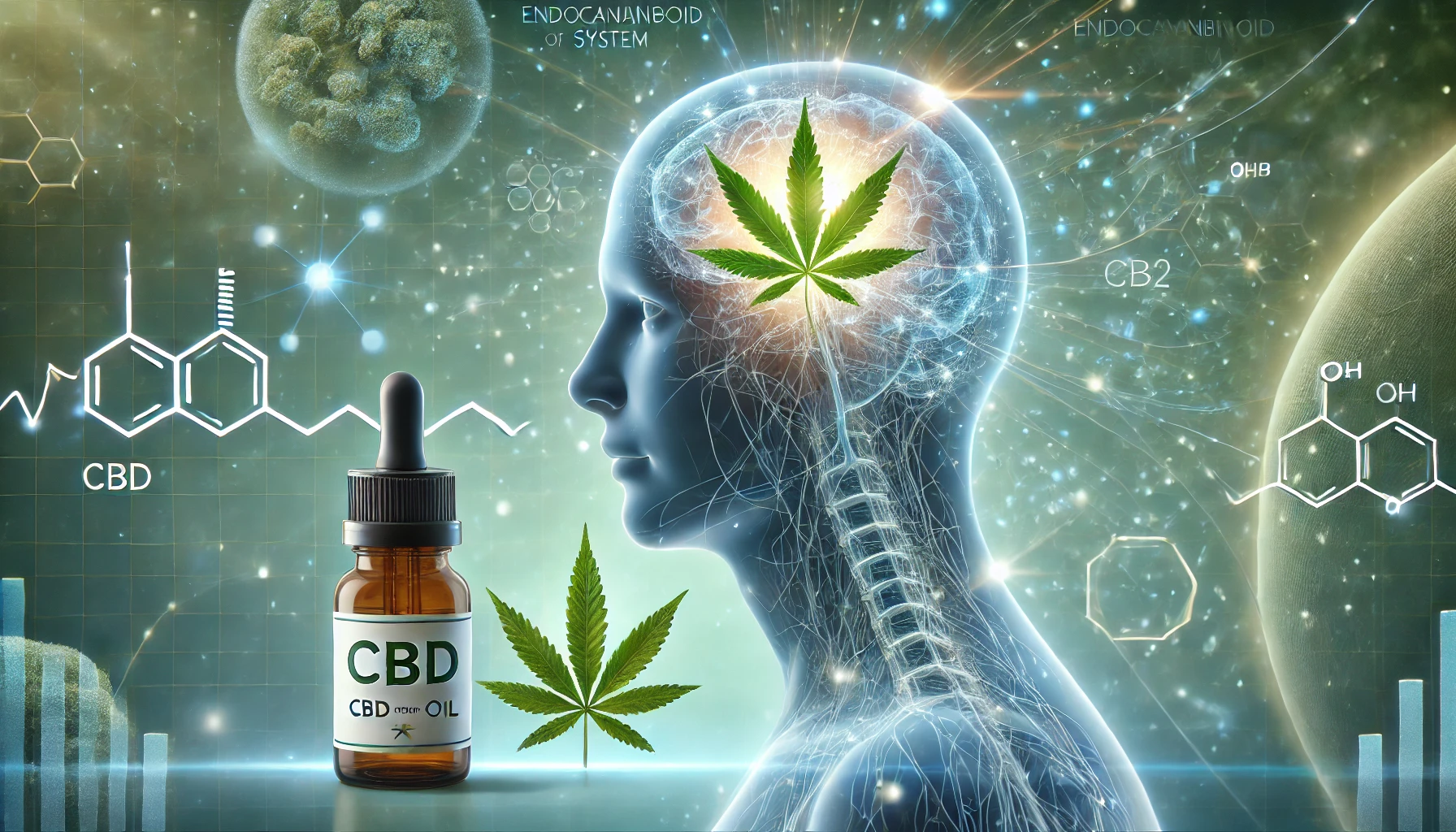How CBD Interacts with the Endocannabinoid System | Benefits & Effects

In recent years, cannabidiol (CBD) has gained increasing attention in the fields of health and wellness. As a component of the cannabis plant, CBD is often praised for its potential medical benefits without causing the intoxicating effects of THC (tetrahydrocannabinol).
A fundamental understanding of the endocannabinoid system (ECS) is essential to comprehend how CBD works in the body. The ECS plays a crucial role in maintaining various physiological processes and overall homeostasis, which is the balance of bodily functions that stabilizes the internal environment despite external influences.
By examining the interactions between CBD and the ECS, we can better understand how CBD may offer potential health benefits.
Overview of the Endocannabinoid System (ECS)

-
Endocannabinoids: These naturally occurring molecules in the body resemble cannabinoids found in the cannabis plant. The two primary endocannabinoids are 2-arachidonoylglycerol (2-AG) and anandamide (AEA). They act as neurotransmitters, transmitting signals to maintain the body's internal balance.
-
Receptors: The two primary ECS receptors are CB1 and CB2 receptors. CB1 receptors are primarily found in the brain and central nervous system, while CB2 receptors are located in peripheral organs, especially within the immune system.
-
Enzymes: Enzymes such as monoacylglycerol lipase (MAGL) and fatty acid amide hydrolase (FAAH) are responsible for breaking down endocannabinoids after use. MAGL breaks down 2-AG, while FAAH degrades anandamide.
These three components work together to regulate various bodily processes. Disruptions in the ECS can lead to health issues, which compounds like CBD may help address.
How the Endocannabinoid System Interacts with CBD
CBD works differently than THC. While THC directly binds to CB1 receptors, causing the well-known psychoactive effects, CBD does not bind directly to CB1 or CB2 receptors. Instead, it influences the ECS indirectly by regulating the production and breakdown of endocannabinoids.
Studies suggest that CBD inhibits FAAH enzyme activity, slowing down the breakdown of anandamide. Anandamide, also known as the "bliss molecule," is associated with improved mood and reduced pain perception.
Due to this indirect action, CBD can affect various physiological processes without causing the intoxicating effects of THC. Additionally, CBD appears to influence other receptors and signaling pathways in the body, which may explain its broad therapeutic potential.
CBD’s Effects on Other Receptors Outside the ECS
CBD does not only interact with the endocannabinoid system but also affects other receptor systems in the body, including:
-
Serotonin receptors: These receptors play a central role in regulating mood, anxiety, and stress. CBD's influence on serotonin could explain why it is often used for relaxation and stress relief.
-
TRPV1 receptors: These receptors are involved in the perception of pain and inflammation. CBD’s activation of TRPV1 receptors may help reduce pain and inflammation.
Potential Health Benefits of CBD
Due to its diverse effects, CBD is gaining popularity. Although research is still ongoing, numerous studies and user experiences suggest the following potential benefits: 
Pain Management
Many people use CBD to relieve pain. Its interaction with TRPV1 and CB2 receptors may help reduce pain perception and inflammation.
Stress and Anxiety Reduction
Studies indicate that CBD can help alleviate stress and anxiety by influencing serotonin and GABA receptors. This effect may assist in managing emotional distress.
Improved Sleep
CBD’s relaxing properties can positively impact sleep. Many users report improved sleep quality and an easier time falling asleep after taking CBD.
Products for Your CBD Journey
If you’re looking to explore the world of CBD, there are various products available that can help you experience its benefits:
- Vitadol Gold – Organic CBD Oil 10% (1,000mg) – 10ml – Price: €54.90
- Vitadol Complex – Organic CBD Oil 10% (1,000mg) – 10ml – Price: €49.95
- Cantura Akut CBD Care Balm 300mg – Price: €39.00 (now on sale: €18.98)
Conclusion
CBD offers a wide range of potential applications by regulating the endocannabinoid system and influencing other vital bodily functions. Its effects on pain, mood, and sleep are particularly noteworthy.
Despite promising findings, further research is needed to fully understand CBD’s potential and its long-term health benefits. Anyone considering CBD for wellness purposes should conduct thorough research and, if necessary, consult a doctor or specialist.
Recent posts
Author
Contents
© 2024 - 2025 Cannadusa. Powered by Medusa Engineering GmbH
• Impressum • AGB • Datenschutz • Compliance

